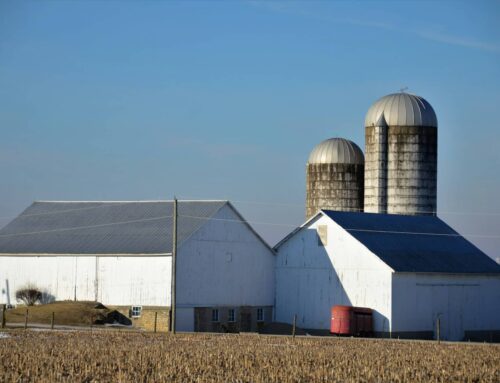Georgia Congressman David Scott has made history. Growing up in a farming family in the segregated South, he became a member of Congress. His life story is one of resilience, hard work, and overcoming adversity. Now he is Chairman of the U.S. House Agriculture Committee.
Drawing upon his life experience, Chairman Scott can bring an awareness of how sensible government programs can help farmers increase their resilience during these volatile economic times.
As Chairman Scott recognizes, these uncertainties are magnified by climate change, which is fostering extreme and more frequent weather events – droughts, flooding, heatwaves, more intense hurricanes – that affect farming operations.
Calls for increased federal spending to help farmers adapt to climate change are growing as well, but spending alone will not protect farmers, the climate – or taxpayers.
With climate-induced disasters posing increasing risks to our society and economy, Washington must harness the proven innovation of America’s agriculture sector. Chairman Scott and his colleagues should support reforms that provide a stable and predictable farm safety net that promotes the economic and climate resilience of farmers, while protecting federal taxpayers – that’s you and me.
The U.S. Department of Agriculture should start by increasing data sharing among its many agencies. USDA has a wealth of taxpayer-funded data on the interplay between on-farm conservation practices, crop yields and safety net costs, but it is spread among various agencies and seemingly guarded under lock and key.
This walling off of data effectively puts valuable information off-limits to researchers, state agricultural extension agents and producers. Farmers should not have to reinvent the wheel when contemplating conservation investments, especially when taxpayers and farmers have funded and test-driven a whole fleet of options.
In addition, Congress should encourage USDA to promote effective conservation practices instead of discouraging them. Because most lenders won’t approve an operating loan without taxpayer-subsidized crop insurance, farmers are incentivized to plant cash crops (corn, cotton and soybeans) even if cover crops would make better economic and environmental sense. While research shows that the long-term application of conservation produces more stable and ultimately increased yields, federal crop insurance fails to distinguish between producers who have adopted conservation and those who haven’t.
We can begin to make the crop insurance program more accountable by supporting efforts to ensure USDA’s risk ratings accurately assess the risk reduction benefits of conservation practices. USDA should also explore innovative financing opportunities for farmers who want to implement conservation but are blocked by bankers and bureaucracy.
USDA is currently taking steps to create a new program to subsidize “climate smart” commodities that would originate with the Commodity Credit Corporation (CCC), an oddly named entity typically used to distribute farm subsidies and loans.
However, this proposal has several pitfalls. First, the CCC has a recent track record of politicization and a history of dodging congressional oversight, wasting tens of billions of dollars. Second, given the potential costs, infancy of carbon markets and technical complexity of measuring soil carbon, the new initiative may fail to mitigate climate change. Finally, experts warn that layering more subsidies upon the current broken farm subsidy system may distort markets and violate international trade agreements while failing to promote climate resilience.
Chairman Scott should instead lead ways to reform existing farm bill conservation programs to prioritize carbon sequestration and other water and soil benefits. He can help ensure that lawmakers have bipartisan input in these long-term reforms. If USDA goes on its own, creating a program without Congressional input, the new initiative may be scrapped when a new administration comes into office, eliminating any potential climate benefits.
With Chairman Scott helming the Agriculture Committee, Congress should reform agriculture and climate policies. Now is an opportune time to enact resilient, climate-friendly policies in an open, transparent manner through the farm bill and other legislative processes instead of through the executive branch alone.
Real progress takes more than dollars, it also requires change.
Joshua Sewell directs the Agriculture Reform Program at Taxpayers for Common Sense, a nonpartisan budget watchdog.










